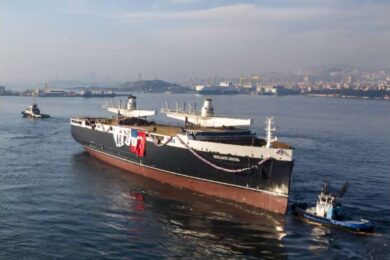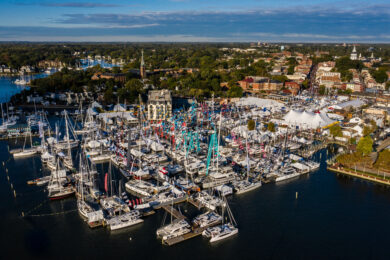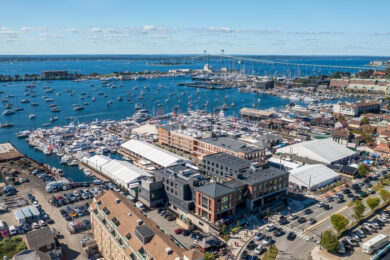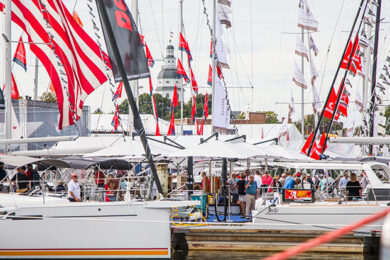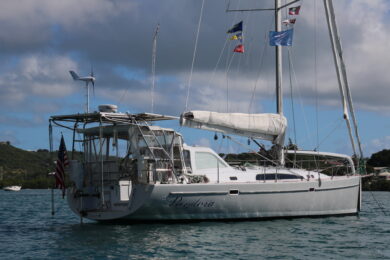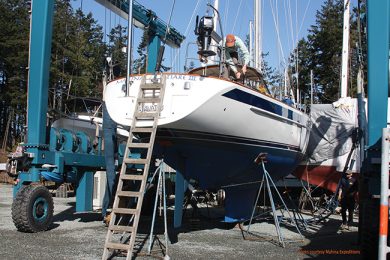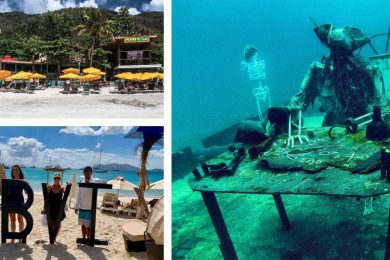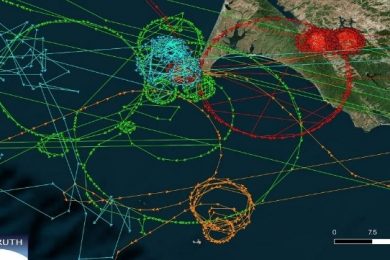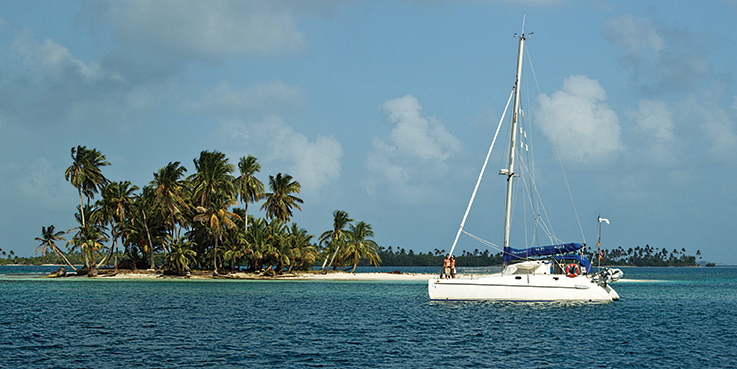Do you have what it takes to sail into the sunset? (published April 2017)
A cruiser is someone who sails for pleasure without an exact destination, and in some cases without an exact duration. Not as a cruise ship passenger, of course, but as a sailor on his or her own boat or as crew on someone else’s modest floating home.
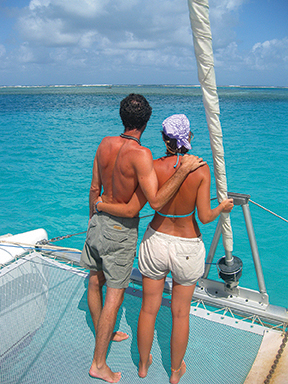 Sailing the world has a romantic connotation to it. Who wouldn’t want to explore paradise on their own sailboat? While it is always 5 o’clock somewhere, in reality there is more to cruising than tropical cocktails and magnificent sunsets. It takes a particular kind of person to deal with and appreciate Mother Nature, day and night, and to take on a watery life. How does your personality compare to the following qualities, necessary to survive as a long-term cruiser? Do you have what it takes to sail into the sunset?
Sailing the world has a romantic connotation to it. Who wouldn’t want to explore paradise on their own sailboat? While it is always 5 o’clock somewhere, in reality there is more to cruising than tropical cocktails and magnificent sunsets. It takes a particular kind of person to deal with and appreciate Mother Nature, day and night, and to take on a watery life. How does your personality compare to the following qualities, necessary to survive as a long-term cruiser? Do you have what it takes to sail into the sunset?
Connectivity
Most people go about sailing the world with someone else, usually their significant other, sometimes a family member or friend, and more often than you think, with their whole family. To be together 24/7 with other people in a small space is something that should not be underestimated. There has to be a very special connection between you and your boat mate(s) to start—and more importantly—finish a long-term adventure at sea successfully. You have to be able to endure each other in any situation imaginable, you have to support each other and be a perfect team, in and under all conditions!
Flexibility
Many first-timers think they can “just” buy a boat, point their bows towards their preferred destination, gloriously sail across the horizon and effortlessly arrive in an idyllic place, to relax, explore and enjoy paradise forever. Nope. When you travel by boat, you are 100% dependent on the weather. The forecast (correctly predicted or not) decides where you sail to, how long the trip takes, when you can leave an anchorage, how long you can comfortably stay in a location, whether you have to skip a fantastic place, and how blissful the journey actually is. Add unexpected system failures or engine problems, sail damage or dinghy issues, bank holidays you forgot about, and delivery delays for needed parts, and more often than not, your intended departure, or arrival, will be postponed. If you cannot go with the flow… forget about cruising!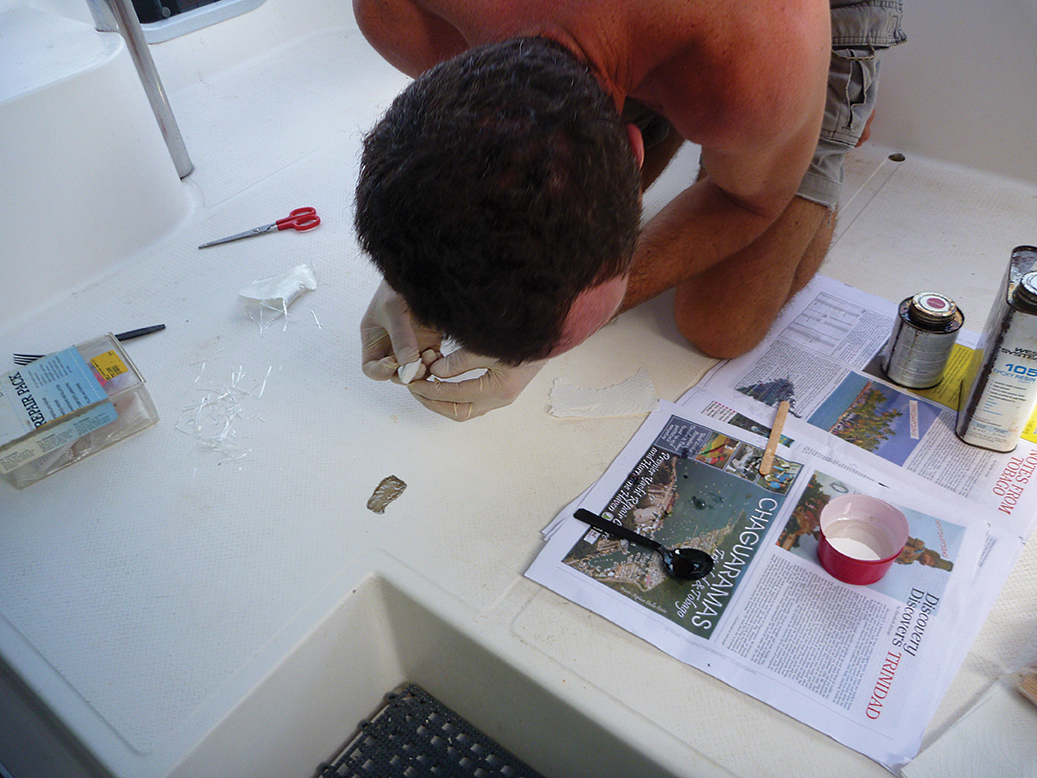
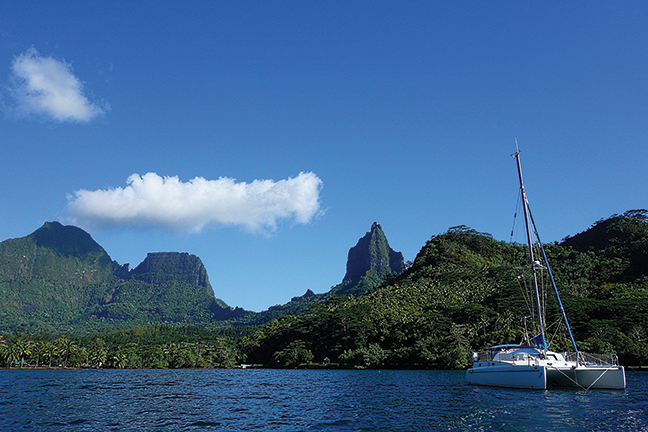 Appreciation
Appreciation
You have to appreciate the world around you, since you are such an integral part of it while cruising the seven seas. You have to love nature, respect the ocean, its creatures and the environment, enjoy its bounties and be aware of its power. The biggest storms can fill you with unrivaled fear, but the many wildlife encounters will fill you with the purest joy. Mother Nature provides you with wind to sail, fish to eat, water to drink and power to navigate, communicate and preserve your food. She deserves some respect.
Creativity
Being handy is a bonus while maintaining a cruising life. The list of things to fix is never-ending. Being equipped with spare parts and manuals is mandatory, but you also have to be resourceful in times of need. Often, things happen when you least expect it, mid-ocean or in the most remote anchorage. The ability to rig up something temporary until you reach civilization again can be a matter of life and death. And, of course it is nice to be able to create an impromptu gift or poem for the birthday of someone you just met.
Strength
You have to be relatively strong, physically and mentally, to run a boat and live on the water full-time. Could you set the sails, handle the lines and the anchors, haul the dinghy onto a beach, climb in it from a bobbing boat and out of it on a rickety dock, and do a bunch of other manual labor? Under pressure? You also have to be quite healthy, since remote areas lack medical facilities, and be in good spirits about spending days or weeks in the middle of nowhere, far away from friends, family, and Facebook.
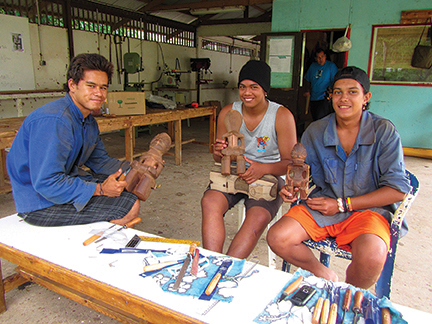 Tolerance
Tolerance
Not only do you have to be tolerant towards your sailing partner(s) and neighbors, but you have to possess an open mind towards the people you visit, and respect their cultures and traditions. It pays off to be friendly, learn a few words in the local language and make some effort to understand the way of life you are about to partake in.
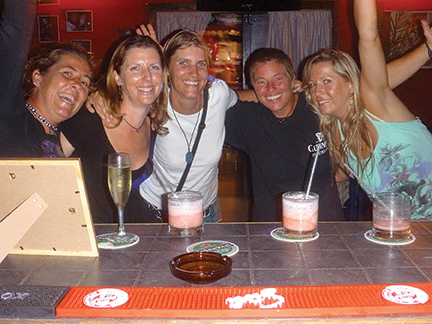 Social skills
Social skills
Having decent social skills can mean the difference between being lonely and being alone. Cruising generally resembles a pretty secluded lifestyle. There are, of course, other people around, either on boats or ashore, but you need to expend a bit of effort to meet them. Once that happens, depending on the hospitality of the local population and the popularity of the cruising grounds you are in, you might find yourself needing a calendar to schedule events!
Self-sufficiency
If you are a cruiser who appreciates peace, solitude, privacy and beauty, you have to be responsible and self-sufficient to enjoy your favorite anchorage for as long as possible. You have to immaculately maintain the boat and stock up on groceries and spare parts, and your vessel needs the means to provide you with water and power, away from land. Being at anchor, utilizing your wind generator, solar panels and water collecting system is very different from being in a marina.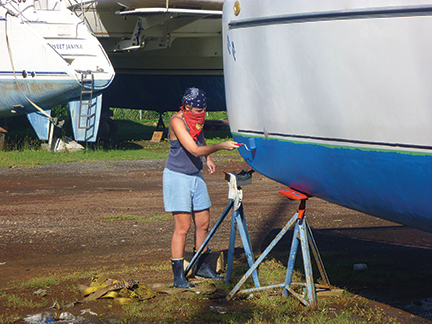
Patience
Patience for the right weather to arrive, patience while the sails are flapping and you are bouncing on the waves, waiting for the wind to get you moving again, patience for a storm to subside, patience with an incredibly weak and unreliable internet signal, patience with customs and immigration to fill out their paperwork, patience with a language you barely speak, patience with an unmotivated employee, patience with a store that’s closed for lunch while the sun is roasting you, patience to get where you want or what you really need. Patience is a worthy and worldly virtue while living afloat!
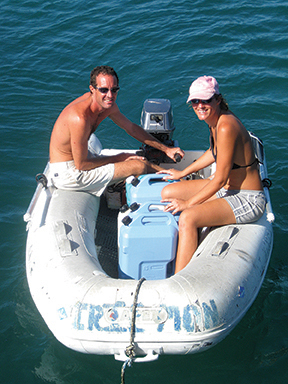 While currently living ashore, Liesbet Collaert and her partner, for seven years, lived and cruised aboard Irie, a 35 foot Fountaine Pajot.
While currently living ashore, Liesbet Collaert and her partner, for seven years, lived and cruised aboard Irie, a 35 foot Fountaine Pajot.

